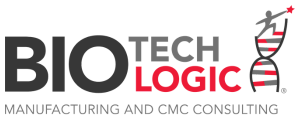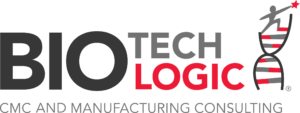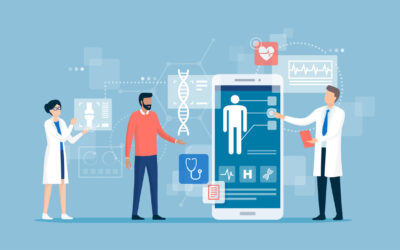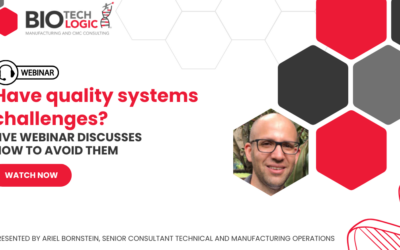Tonia Becker, Life Sciences Editor, Macon Raine talks with BioTechLogic’s Ted Condez
How is the medical device and biopharmaceutical market faring during the COVID-19 pandemic? For an answer to this question, there is no better place to turn to than BioTechLogic’s team of biopharmaceutical consultants.
I had the opportunity to speak with Ted Condez, Senior Consultant, Medical Device Quality. Ted does a great deal of work with medical device and drug–device combination products. In addition to his work for products that will be sold in the US, he is working extensively to help medical device companies adapt to the new regulatory environment in Europe.
What are your medical device clients’ current priorities and primary challenges?
Ted: For my clients, it’s business as usual. They are moving projects forward, but it’s been more difficult to execute, especially for those who rely on contract manufacturing organizations. This is starting to change, but early in the pandemic, developers couldn’t have any face-to-face communications with their contract partners. When they cannot go on-site and strategize to address challenges, it slows everything down as manufacturing issues are difficult to address remotely.
Are you seeing any interesting trends develop within the medical device sector?
Ted: There’s currently a great deal of technology and healthcare convergence—apps and devices are being introduced to monitor a wide range of biomedical information. We are all familiar with the heart rate tracking capabilities of devices like the Apple Watch and Fitbit. In addition to consumer product types of apps, applications for remote monitoring are being developed. For instance, solutions like KardiaMobile feature medical-grade electrodes that can be monitored remotely by the patient’s healthcare provider, and patients can access their own data through a mobile phone app. The device is FDA-cleared and serves as a clinical-grade personal EKG monitor. This is just one example of many technologies active within the market or in development.
Of course, widely known for its consumer products, Apple has moved into the healthcare arena and is being used by healthcare professionals to monitor patient heart rhythms and other associated data. These advancements are wonderful, but technology companies that are generally unfamiliar with healthcare and diagnostics approval processes and need help.
The interesting thing is that we have some medical device clients looking to develop technology-based solutions because investors are often more interested in backing technology products. Getting funding is simply easier most of the time.
Are you experiencing big backlogs with either the FDA or EMA?
Ted: Yes, particularly on the device side in Europe. Regulation (EU) 2017/745 was enacted into law on May 25, 2017, replacing the European Union’s (EU’s) Medical Device Directive (93/42EEC) and the EU’s directive on active implantable medical devices (90/385/EEC). Per Article 117 of the new regulation, products with an integral medical device are subject to new requirements. Manufacturers and developers submitting drug-device combination products for market approval on or after May 26, 2020, were expected to comply with the new regulations.
Because of the COVID-19 pandemic, the compliance date has been extended for one year. There is a reasonable amount of confusion because this is not a simple extension. Companies should likely transition to the new regulations, but since the former regulations are still in place, they will need to strategize and then communicate with their notified body.
Generally, I would advise companies to continue with the transition as if May 26, 2020, were still the deadline date. However, the tricky part now is that some notified bodies will want to accept dossiers that comply with the old standards because of the delay. Effective communications with the notified body are definitely the key to making sure that they are submitting the correct information as the changes in the regulations are substantial.
Are you seeing clients having a hard time transitioning to the new regulation?
Ted: Yes. None of my current clients, but I am hearing from former colleagues that some companies are facing some challenges. Even for companies not struggling per se, there are decisions to be made. One of my clients is planning to introduce their product to the European markets in three or four years. During another era, I might advise a client to start putting together documentation now.
But given all the changes and, now, the delay, I have suggested that it probably is not the best use of time and resources to start the process now. Rather, wait a year or so until these changes are a bit more settled and figured out. Going down the wrong path would waste a lot of time and resources because a great deal of documentation is required.
There was concern that notified bodies were going to be backed up and not able to handle all the new approvals they will need to make. Have you found this to be the case?
Ted: There are challenges, but it is a case-by-case situation. A lot of start-ups in the medical device space are having a hard time getting a notified body to commit to them. Typically, the process is that you communicate with several potential notified bodies and find three or four solid candidates based on their experience with products like yours. Then, gather quotes to determine which one you are going to go with.
Due to bandwidth, many notified bodies can’t handle any new submissions, particularly with this regulatory transition still underway. Others may be accepting new submissions that they can’t handle, which can cause backups.
So for new companies needing to build a relationship with a notified body or existing companies needing to make a transition, it’s a large challenge. But it has not been an issue for companies that already have a notified body.
Ted: Definitely. For instance, BSI is probably one of the largest notified body in Europe. But it is centralized in the UK, and after Brexit, you won’t be able to use it as your notified body if you plan to distribute your product in the EU. So a lot of companies are transitioning to BSI’s Dutch office or to a different Notified Body entirely, causing additional pressure and potential backlog among Notified Bodies based in the EU.
Securing an authorized representative, also called an EU representative, has been another significant challenge for many companies. In addition to a notified body, a medical device company selling or striving to sell within the EU market must be connected with a local or EU representative to distribute products. Companies with EU representatives based in the UK must find a new representative located in the EU. However, as with the notified body situation, the UK will still operate as an EU member country until December 2020, so there is a little bit of flexibility.
If your team is challenged by hitting pending deadlines, BioTechLogic’s team of expert, senior-level consultants are happy to work alongside your team to make sure you hit your critical milestones. Feel free to contact us.







